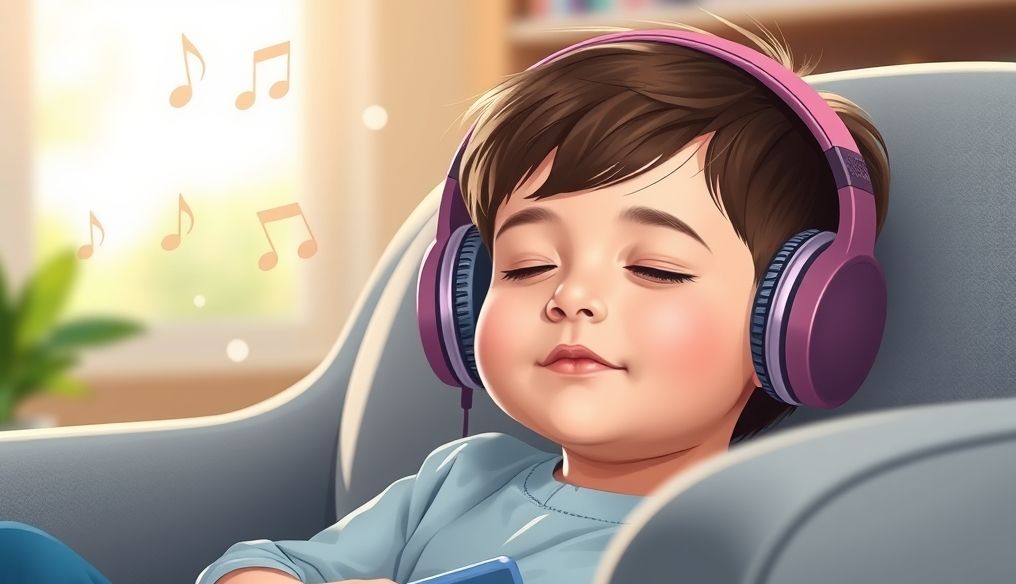Does Mozart's Music Really Make Children Smarter?
Music has always been an integral part of human culture, playing a vital role in expressing emotions, fostering social connections, and even influencing brain functions. Among the various musical genres, Mozart's music has garnered special attention, particularly regarding its potential impact on children's cognitive abilities. The idea that listening to Mozart's music can enhance intelligence, known as the "Mozart effect," has sparked widespread debates among scientists and parents alike. But is this idea supported by strong scientific evidence? That's what we will try to explore in this article.
What is the "Mozart Effect"?
The term "Mozart effect" first appeared in 1993 when the journal Nature published a study by researchers Frances Rauscher, Gordon Shaw, and Katherine Ky. In this study, the researchers found that college students who listened to Mozart's Sonata for Two Pianos in D Major, K. 448 for 10 minutes showed a temporary improvement in spatial-temporal reasoning skills. These skills are essential for solving geometric problems and understanding spatial relationships. However, this improvement was short-lived, lasting only 10-15 minutes.
Although the original study was conducted on adults, the idea of the "Mozart effect" quickly spread among parents who wished to enhance their children's intelligence. Companies began marketing CDs and videos featuring Mozart's music, claiming that they could make children smarter. These claims, although greatly exaggerated, contributed to the entrenchment of the "Mozart effect" in popular culture.
Scientific Evidence: Does it Support the "Mozart Effect"?
Since the publication of the original study, numerous studies have been conducted to assess the validity of the "Mozart effect." However, the results have been mixed. Some studies have shown similar results to the original study, finding slight improvements in spatial reasoning skills after listening to Mozart's music. But other studies have found no effect at all.
One important study conducted in 1999 by Kenneth Steele and colleagues found no evidence of the "Mozart effect." The researchers analyzed the results of 16 different studies on the subject and concluded that any improvements in cognitive performance after listening to Mozart's music were small and inconsistent. They pointed out that these improvements may be due to other factors, such as enjoying the music or increased alertness.
Overall, the scientific evidence does not support the idea that listening to Mozart's music can significantly or permanently increase children's intelligence. However, this does not mean that music has no cognitive benefits. In fact, research suggests that music can have a positive impact on the brain in several ways.
Other Benefits of Music for Children
Regardless of the alleged "Mozart effect," there are many good reasons to expose children to music. Some potential benefits include:
- Improved Memory: Studies suggest that music can help improve memory and learning. Music can help children remember information better, especially if the information is linked to a specific melody or rhythm.
- Enhanced Language Skills: Music can help children develop their language skills. It can help them learn new words, improve pronunciation, and understand grammar rules.
- Development of Social Skills: Music can help children develop their social skills. It can help them work together in a team, listen to others, and express themselves creatively.
- Reduced Stress and Anxiety: Music can help children reduce stress and anxiety. It can help them relax and feel calm.
- Improved Motor Coordination: Learning to play a musical instrument can improve children's motor coordination, helping them develop their fine and gross motor skills.
Why Might the "Mozart Effect" be Overrated?
There are several reasons to believe that the "Mozart effect" may be overrated:
- Small Sample Size: Many studies claiming the existence of the "Mozart effect" were conducted on small samples of participants, making it difficult to generalize the results more broadly.
- Temporary Improvements: Even studies that found improvements in cognitive performance after listening to Mozart's music, these improvements were temporary and short-lived.
- Placebo Effects: Some of the "Mozart effect" may be just a placebo effect. In other words, people may believe that they have become smarter after listening to Mozart's music, even if there is no real improvement in their cognitive abilities.
- Other Effects: Improvements in cognitive performance after listening to Mozart's music may be due to other factors, such as enjoying the music or increased alertness.
How Can Parents Benefit from Music for Their Children?
Although the "Mozart effect" may be overrated, there are many ways parents can benefit from music for their children. Here are some tips:
- Expose your child to a variety of music: Don't limit yourself to Mozart's music only. Expose your child to a variety of different musical genres, including classical music, folk music, jazz, and world music.
- Encourage your child to learn to play a musical instrument: Learning to play a musical instrument can have many cognitive, social, and emotional benefits for children.
- Make music a part of your child's daily routine: Play music while playing, while eating, or before bed.
- Sing to your child: Singing to your child can help strengthen the bond between you, improve your child's language skills, and reduce stress and anxiety.
- Go to concerts with your child: Going to concerts can expose your child to different types of music and help them develop an appreciation for the arts.
Conclusion
Although the idea of the "Mozart effect" may be appealing, the scientific evidence does not support the idea that listening to Mozart's music can significantly or permanently increase children's intelligence. However, this does not mean that music has no benefits for children. In fact, research suggests that music can have a positive impact on the brain in several ways, including improving memory, enhancing language skills, developing social skills, and reducing stress and anxiety. Therefore, parents should encourage their children to listen to music, learn to play a musical instrument, and make music a part of their daily routine.
Sources:
- Rauscher, F. H., Shaw, G. L., & Ky, K. N. (1993). Music and spatial task performance. Nature, 365(6447), 611.
- Steele, K. M., Bass, K. E., & Crook, M. D. (1999). The mystery of the Mozart effect: Failure to replicate. Psychological Science, 10(4), 366-369.




